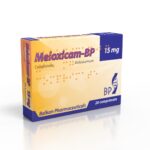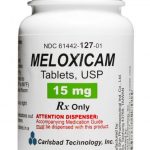Can I take Meloxicam and Alcohol Together?

Throughout the 10,000 or so years that humans have been drinking fermented beverages, they’ve also been arguing about their merits and demerits. The debate still simmers today, with a lively back-and-forth over whether alcohol is good for you or bad for you.
It’s safe to say that alcohol is both a tonic and a poison. The difference lies mostly in the dose. Moderate drinking seems to be good for the heart and circulatory system and probably protects against type 2 diabetes and gallstones. Heavy drinking is a major cause of preventable death in most countries. In the U.S., alcohol is implicated in about half of fatal traffic accidents. Heavy drinking can damage the liver and heart, harm an unborn child, increase the chances of developing breast and some other cancers, contribute to depression and violence, and interfere with relationships.
Even in small amounts, alcohol may intensify medication side effects such as sleepiness, drowsiness, and light-headedness, which may interfere with your concentration and ability to operate machinery or drive a vehicle, and lead to serious or even fatal accidents.
Because alcohol can adversely interact with hundreds of commonly used medications, it’s important to observe warning labels and ask your doctor or pharmacist if it’s safe to use alcohol with any medications and herbal remedies that you take.
What is Meloxicam?
Meloxicam is a medication used to relieve pain, tenderness, swelling, and stiffness caused by osteoarthritis (arthritis caused by a breakdown of the lining of the joints) and rheumatoid arthritis (arthritis caused by swelling of the lining of the joints).
Meloxicam is also used to relieve the pain, tenderness, swelling, and stiffness caused by juvenile rheumatoid arthritis (a type of arthritis that affects children) in children 2 years of age and older. Meloxicam is in a class of medications called nonsteroidal anti-inflammatory drugs (NSAIDs). It works by stopping the body’s production of a substance that causes pain, fever, and inflammation.
Meloxicam is also used sometimes to treat ankylosing spondylitis (arthritis that mainly affects the spine). Talk to your doctor about the possible risks of using this medication for your condition.
Forms and strengths
Generic: Meloxicam
• Form: oral tablet
• Strengths: 7.5 mg, 15 mg
Brand: Mobic
• Form: oral tablet
• Strengths: 7.5 mg, 15 mg
How should Meloxicam be used?
Meloxicam comes as a tablet and suspension (liquid) to take by mouth. It is usually taken once a day with or without food. Take meloxicam at the same time every day. Follow the directions on your prescription label carefully, and ask your doctor or pharmacist to explain any part you do not understand. Take meloxicam exactly as directed. Do not take more or less of it or take it more often than prescribed by your doctor.
Shake the suspension well before each use to mix the medication evenly.
This medication may be prescribed for other uses; ask your doctor or pharmacist for more information.
Can I take meloxicam and alcohol together?
No, meloxicam and alcohol should never be used together because it greatly increases the risk for major upper gastrointestinal (GI) bleeding. Symptoms of GI bleeding include black, bloody, or tarry stools, or coughing up blood or vomit that looks like coffee grounds.
If misused or overused, NSAIDs can cause great harm to patients. In fact, these drugs are one of the leading causes of hospitalization among patients admitted for adverse or side effects of medications. Elderly people and those with pre-existing heart conditions are more likely to suffer heart damage or strokes from NSAIDs
Back in 2005, the FDA warned that taking nonsteroidal anti-inflammatory drugs (NSAIDs) like meloxicam increased the risk of having a heart attack or stroke. In July 2015 the FDA took the unusual step of further strengthening this warning. This was done on the advice of an expert panel that reviewed additional information about NSAIDs and their risks.





